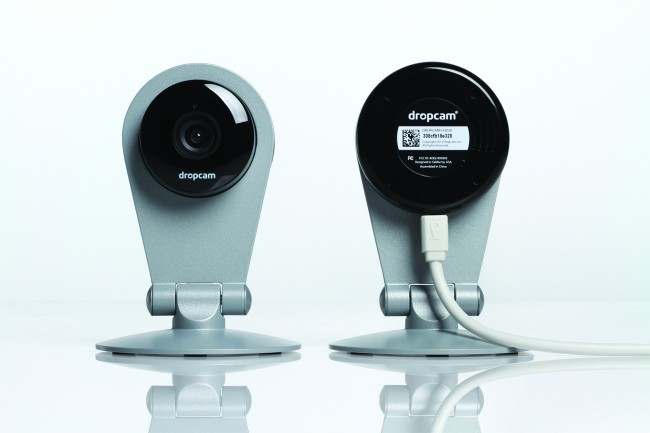Dropcam may make hardware, but it’s not a hardware company.
This is how Dropcam CEO Greg Duffy explains how his company, a surveillance camera startup, has thrived in spite of being in a tough market where young companies often fail: For Dropcam, hardware is only half the battle.
“We’re really just a cloud services company that offers hardware,” Duffy told VentureBeat in an interview yesterday, referring to the cloud-based software that Dropcam owners use to monitor their homes from afar.
That notion has been an attractive one for investors, who are once again pouring fresh cash into Dropcam — this time to the tune of $30 million. The round, led by Institutional Venture Partners (IVP) and joined by Kliener Perkins, Accel Partners, and Menlo Ventures, is more than all of Dropcam’s previous rounds combined. (Its previous round came in June 2012, when it raised $12 million.)
The whole hardware-company-but-not-really stance might be a bit hard to swallow, but Dropcam’s self-identification actually makes it a kindred spirit with Apple. You may think of it as a hardware company, but Apple sure doesn’t. Just take it from CEO Tim Cook:
“Because we’re not a hardware company, we have other ways to make money and reward shareholders,” Cook said at investment conference in February.
Maybe — just maybe — Dropcam is onto something here.
Unsurprisingly, its investors agree. For IVP principal Eric Liaw, the interest in Dropcam wasn’t just because of its hardware or software– it was a combination of both. Just like the iPod would be nothing without iTunes, Dropcam’s camera hardware would be useless without the cloud software and cloud infrastructure to back it up.
Editor’s note: Our upcoming CloudBeat conference, Sept. 9-10 in San Francisco, will be tackling revolutionary cases of enterprise cloud usage, including how video, telephony and messaging apps are being integrated within company IT systems. Register today!
“When you come across a product like Dropcam that does it job so well, you take notice,” Liaw told VentureBeat.
Dropcam, in that sense, isn’t all that different from Dropbox, another company IVP has invested in. “These two companies have created a way to have a seamless experience that’s easy for people to use,” Liaw said.
What’s interesting about this round of finding is that Dropcam didn’t really want it. “Our approach created a lot of buzz in the investor community. We weren’t planning to raise again — ever — but we had some great people knocking on the door,” Duffy said.
But while Dropcam didn’t especially want or need the funding, it’s arguably a lot better off now that it has it. Duffy says that Dropcam plans to use the funding to accelerate its product roadmap — particularly in the machine learning and computer vision space. “We want to be able to look at a video and pare it down to just the important parts,” Duffy said. “We’re really want to understand the rhythm of people’s lives and tell them only what’s important to them.”
Dropcam’s pitch, then, is to be more than just a home surveillance camera company; it wants to be the ultimate home monitoring service. That ambition puts it at the heart of the fledgling Internet of Things, which everyone — Nest, IBM, and even carriers like AT&T — wants a piece of.
Dropcam’s advantage? “We’ve been about doing the hardest thing first — video, which is high bandwidth, and the hardest thing to process,” Duffy said.
Dropcam may make cameras, but if Duffy is right, its real innovations affect what those cameras capture — not the cameras themselves.
VentureBeat's mission is to be a digital town square for technical decision-makers to gain knowledge about transformative enterprise technology and transact. Learn More

